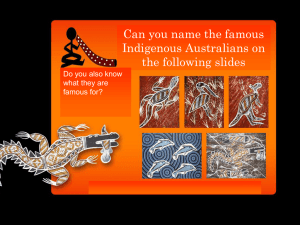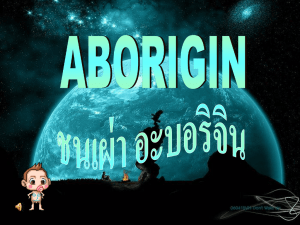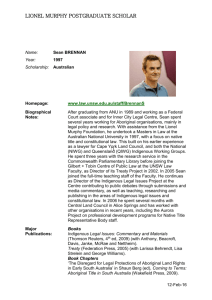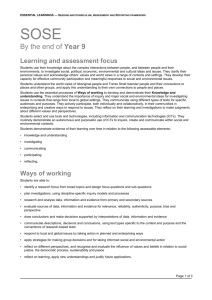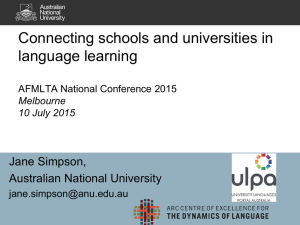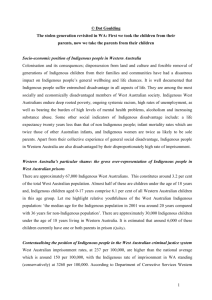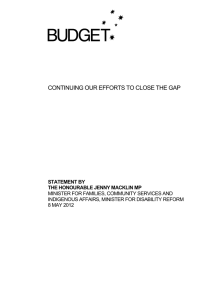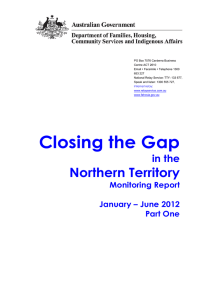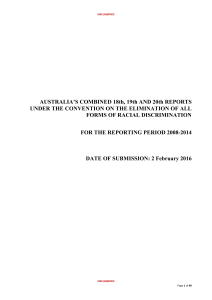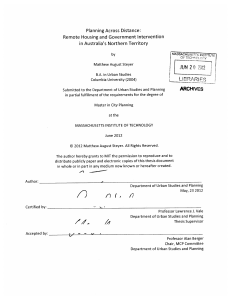Trans cultural curriculum
advertisement
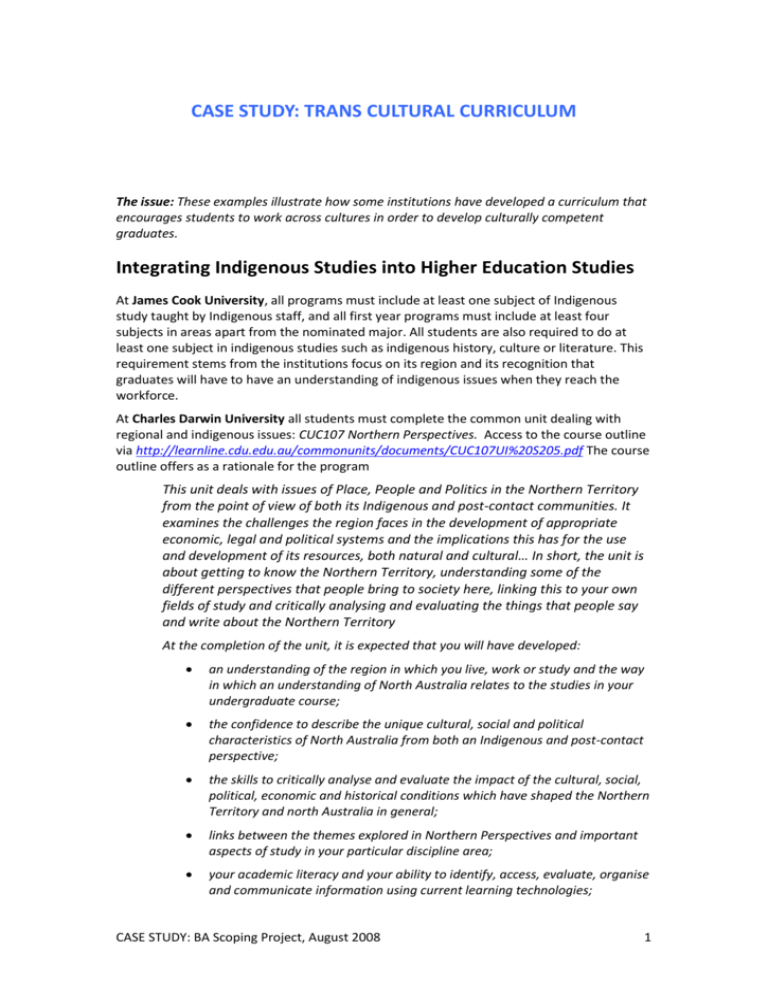
CASE STUDY: TRANS CULTURAL CURRICULUM The issue: These examples illustrate how some institutions have developed a curriculum that encourages students to work across cultures in order to develop culturally competent graduates. Integrating Indigenous Studies into Higher Education Studies At James Cook University, all programs must include at least one subject of Indigenous study taught by Indigenous staff, and all first year programs must include at least four subjects in areas apart from the nominated major. All students are also required to do at least one subject in indigenous studies such as indigenous history, culture or literature. This requirement stems from the institutions focus on its region and its recognition that graduates will have to have an understanding of indigenous issues when they reach the workforce. At Charles Darwin University all students must complete the common unit dealing with regional and indigenous issues: CUC107 Northern Perspectives. Access to the course outline via http://learnline.cdu.edu.au/commonunits/documents/CUC107UI%20S205.pdf The course outline offers as a rationale for the program This unit deals with issues of Place, People and Politics in the Northern Territory from the point of view of both its Indigenous and post-contact communities. It examines the challenges the region faces in the development of appropriate economic, legal and political systems and the implications this has for the use and development of its resources, both natural and cultural… In short, the unit is about getting to know the Northern Territory, understanding some of the different perspectives that people bring to society here, linking this to your own fields of study and critically analysing and evaluating the things that people say and write about the Northern Territory At the completion of the unit, it is expected that you will have developed: an understanding of the region in which you live, work or study and the way in which an understanding of North Australia relates to the studies in your undergraduate course; the confidence to describe the unique cultural, social and political characteristics of North Australia from both an Indigenous and post-contact perspective; the skills to critically analyse and evaluate the impact of the cultural, social, political, economic and historical conditions which have shaped the Northern Territory and north Australia in general; links between the themes explored in Northern Perspectives and important aspects of study in your particular discipline area; your academic literacy and your ability to identify, access, evaluate, organise and communicate information using current learning technologies; CASE STUDY: BA Scoping Project, August 2008 1 your ability to work collaboratively. Integrating International Students into an Australian Context Wollongong University offers a unit (subject) ARTS 201. It is alternately known as “Introduction to Australia for International Students” or Regional Australian Society and Environment: A Field Study depending on whether it is marketed as a short course the Study Abroad program or as a within the Arts program. This unit provides an opportunity to explore the Australian landscape, cultural and social issues through field based intensive three week study. It introduces students to a range of environmental and social issues relevant to understanding contemporary regional Australian society. It covers the natural and the social issues and examines both wider Australian and indigenous aspects of environment and society. http://www.uow.edu.au/prospective/studyabroad/shortcourses/index.html Disclaimer: The information described above emerged from interviews, discussions and observation of publicly available materials during the BA Scoping Project which commenced in March 2007 and concluded in August 2008. As a result, the practices described in this case study may not reflect current practices or institutional policy. They are a reflection of the understanding at the time the scoping project was in progress. Support for this publication has been provided by the Australian Learning and Teaching Council Ltd, an initiative of the Australian Government Department of Education, Employment and Workplace Relations. The BA Scoping project was developed under the auspice of The Australasian Council of Deans of Arts, Social Sciences and Humanities (DASSH The views expressed in this publication do not necessarily reflect the views of the Australian Learning and Teaching Council. CASE STUDY: BA Scoping Project, August 2008 2
